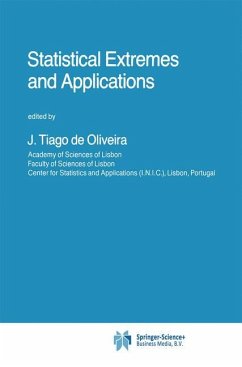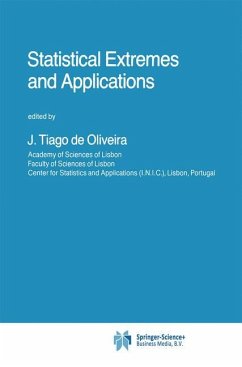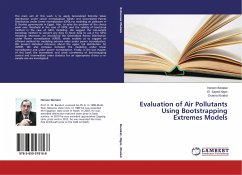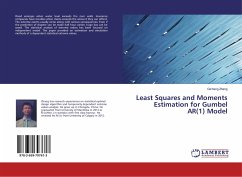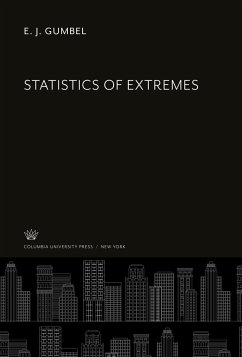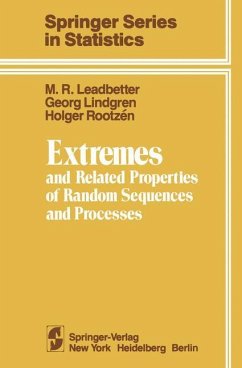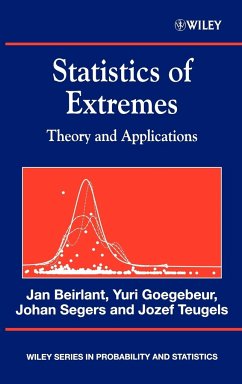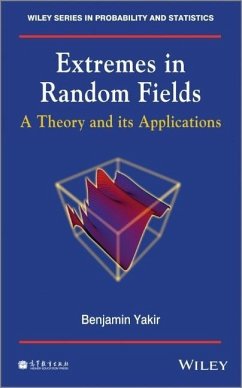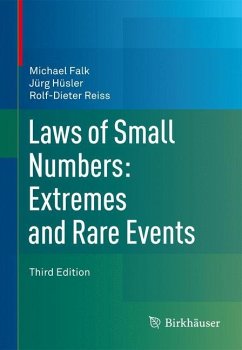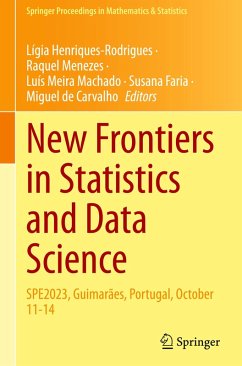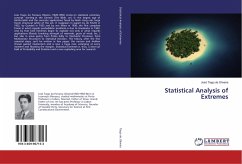
Statistical Analysis of Extremes
Versandkostenfrei!
Versandfertig in 6-10 Tagen
47,99 €
inkl. MwSt.

PAYBACK Punkte
24 °P sammeln!
Jose Tiago da Fonseca Oliveira (1928-1992) wrote on statistical extremes, concept starting at the Genesis (The Bible, vol. I): the largest age of Methu'selah and the concrete applications faced by Noah- long rain, large flood, structural safety of the ark. It reappears in papers by de Finetti in 1932, by Gumbel in 1935 and by von Mises in 1936; the first complete frame in what regards probabilistic problems is due to Gnedenko in 1943. And by that time Extremes begin to explode not only in what regards applications (floods, breaking strength of materials, gusts of wind, etc. ) but also in areas...
Jose Tiago da Fonseca Oliveira (1928-1992) wrote on statistical extremes, concept starting at the Genesis (The Bible, vol. I): the largest age of Methu'selah and the concrete applications faced by Noah- long rain, large flood, structural safety of the ark. It reappears in papers by de Finetti in 1932, by Gumbel in 1935 and by von Mises in 1936; the first complete frame in what regards probabilistic problems is due to Gnedenko in 1943. And by that time Extremes begin to explode not only in what regards applications (floods, breaking strength of materials, gusts of wind, etc. ) but also in areas going from Proba bility to Stochastic Processes, from Multivariate Structures to Statistical Decision. The history, after the first essential steps, can't be written in few pages: the narrow and shallow stream gained momentum and is now a huge river, enlarging at every moment and flooding the margins. Statistical Extremes is, thus, a clear-cut field of Probability and Statistics and a new exploding area for research.



